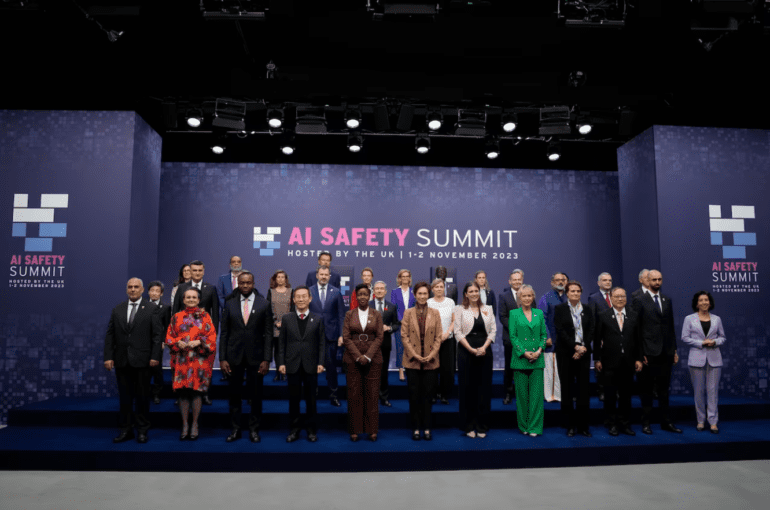TL;DR:
- China, the US, and the EU, along with 25 other countries, have formed an alliance to address AI safety concerns.
- The historic “Bletchley Declaration” was signed at the UK AI Safety Summit, attended by political leaders and tech industry executives.
- The agreement outlines a two-pronged approach: identifying common AI safety risks and developing risk-based policies.
- Transparency, evaluation metrics, safety testing tools, and public sector capabilities are emphasized in the second approach.
- Earlier warnings highlighted the potential existential threats posed by unchecked AI evolution.
- OpenAI takes proactive measures to prevent AI models from causing unintended harm.
- The US issued an executive order to regulate AI while fostering its growth responsibly.
Main AI News:
In a groundbreaking development, China, the United States, and the European Union (EU) have forged a strategic alliance to collaborate on the critical issue of AI safety. This momentous agreement, which also includes participation from 25 other nations, represents a united front to address the potential risks associated with the rapid advancement of artificial intelligence.
At the UK AI Safety Summit, renowned as a historic gathering of minds, these global powerhouses, alongside key players such as India, Germany, and France, penned the historic “Bletchley Declaration.” Named after the iconic London location synonymous with codebreaking during World War II, this declaration signifies a shared commitment to overseeing the responsible development of AI technology.
Distinguished political leaders and top executives from tech giants, including luminaries like Elon Musk and OpenAI’s Sam Altman, were in attendance to lend their support to this groundbreaking initiative. The Bletchley Declaration calls upon its signatory nations to adopt a two-pronged approach in managing the emerging risks posed by AI, akin to those witnessed in domains like cybersecurity and biotechnology.
The first approach involves a concerted effort to identify common AI safety concerns, followed by the creation of a shared, scientifically-grounded understanding of these risks. This collective understanding will serve as the yardstick against which evolving AI capabilities are measured for their potential impact on society.
In parallel, the second approach advocates for the development of nation-specific, risk-based policies to ensure safety in the face of these emerging challenges. Acknowledging that individual national circumstances and legal frameworks may vary, this approach emphasizes the need for transparency among private entities developing frontier AI capabilities. Furthermore, it calls for the establishment of robust evaluation metrics, safety testing tools, and the enhancement of public sector capabilities and scientific research.
This landmark agreement follows earlier warnings from leading figures in the tech industry, academia, and public discourse, highlighting the existential threats posed by unchecked AI evolution. With the potential for catastrophic consequences, these warnings underscore the urgency of global cooperation and oversight in the realm of AI.
This week, OpenAI, the pioneering organization behind ChatGPT, announced its proactive stance by assembling a dedicated team focused on averting scenarios where advanced AI models, known as frontier AI models, could inadvertently trigger nuclear conflicts and other grave threats. Concurrently, the United States, under the leadership of President Joe Biden, issued a long-awaited executive order that sets forth clear regulations and oversight measures to strike a balance between fostering AI innovation and ensuring responsible use.
Conclusion:
The collaborative efforts of China, the US, and the EU, along with other nations, in the form of the Bletchley Declaration, represent a significant step toward ensuring the responsible development of AI technology. This united front enhances transparency, evaluation, and safety measures, mitigating the potential risks associated with AI. For the market, this signals increased regulatory oversight and accountability, which can promote trust and sustainability in the AI industry, ultimately fostering innovation with a focus on safety.

